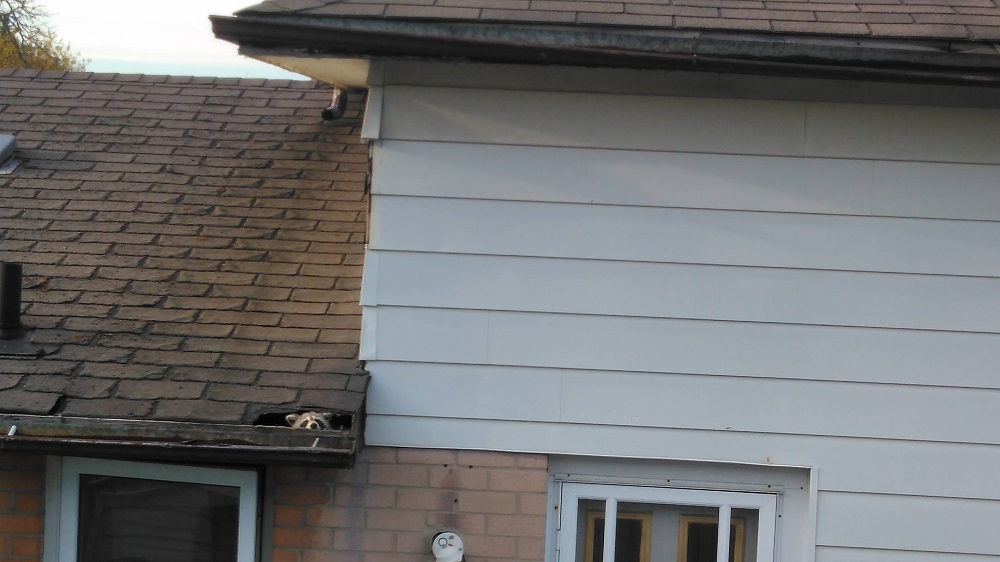Mating season for raccoons occurs in the winter. After a few months’ gestation, females give birth in the spring. Raccoon baby season can last from March until early June, but most babies will be born in April and May. Raccoons are clever, resourceful, opportunistic creatures, and the females have a strong maternal instinct to protect and care for their babies. Therefore, they may take advantage of the warmth and shelter provided by human dwellings in which to bear and rear their babies. This poses a health and safety hazard for you and your household, but fortunately, there are options available for humane animal control Bowmanville.
Where Will Raccoons Nest on Your Property?
A mother raccoon is looking for an area where there is sufficient shelter to keep her babies warm and safe from predators. While nesting raccoons will sometimes bed down in sheds or under decks or porches, they tend to show a preference for nesting in the attic.
When you look at it from a raccoon’s perspective, it’s easy to understand why the attic seems like the best choice. Most attics are unfinished and largely unused, which provides the raccoons with privacy. The walls and ceiling are typically covered with soft insulation perfect for making a nest for their babies. Furthermore, because the attic is elevated, it is harder for predators to access it. This is important for the mother raccoon because her babies won’t be able to fend for themselves until they are three months old.
How Do You Know If You Have a Raccoon Nest?
While some wildlife intrusions can go unnoticed for months or even years, raccoons generally make their presence known. They are fairly large creatures that range in size from 10 to 60 pounds, so they generally make noise in the form of rustling or thumping as they move around in your attic building a nest. They are also nocturnal creatures, so they are likely to be most active at night. You may hear the high-pitched chirping noises that the babies make. This may occur day or night.
The mother raccoon will occasionally have to leave her babies to forage for food. However, she will not stray far from the nest. Rather she will look for food sources that are close. Raccoons are strong and dextrous, so they may knock over trash cans and root through the garbage for food.
Because raccoons are fairly large creatures, they may rip apart your roof or walls while getting into the attic. You may notice damage to roof vents, soffits, or siding.
Why Is Prompt Animal Control in Bowmanville Important?
Once you are aware that you have a raccoon problem, it is necessary to take action as soon as possible. The mother raccoon can be destructive enough, chewing through electrical wires to access the site, ripping up insulation to build a nest, and contaminating the site with excrement and birthing materials. However, once the babies get old enough, they can start wreaking havoc as well, potentially causing thousands of dollars’ worth of property damage.
Once raccoons find a safe, warm place to nest, they may not see any reason to leave. Even if the babies eventually move away from the nest, the young females tend to return to the spot where they were born to start their own families.
Raccoon removal is not a do-it-yourself job. Raccoons are one of North America’s most frequent carriers of rabies, and it is difficult to tell whether or not an animal is infected. Even if not rabid, mother raccoons are very protective and, if threatened, will go to great lengths to protect their babies or to gain access to them if separated. In turn, the babies are reliant on their mother and will die if separated from her.
Raccoon services from Skedaddle Humane Wildlife Control involve removal of mother and babies, decontamination, and identifying and securing entry sites against future intrusions.



